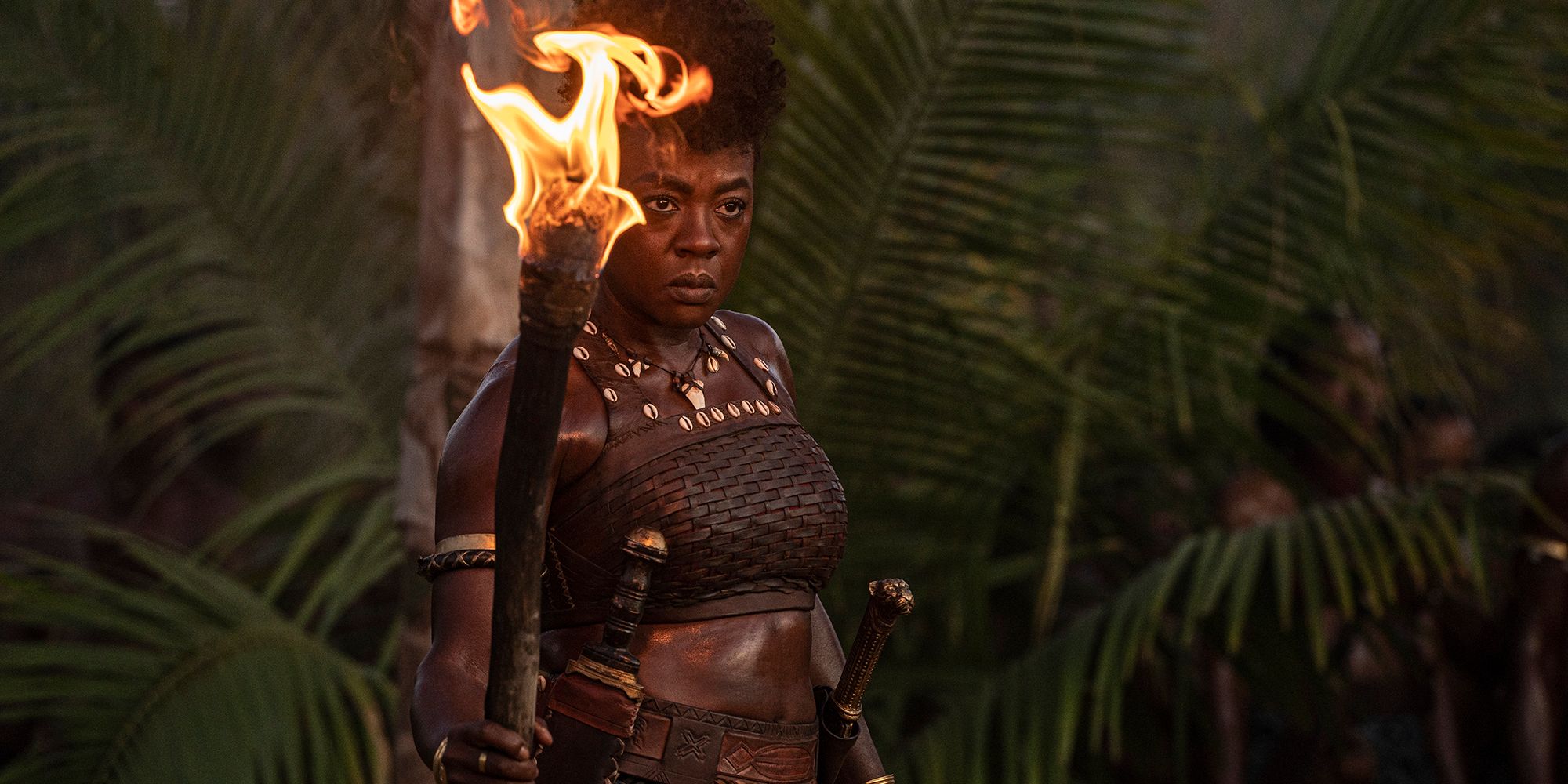The Woman King star, Viola Davis, recently addressed criticisms regarding the movie's historical accuracy. Set in 1823, the film stars Davis as General Nanisca, the leader of the all-women legion of Dahomean warriors known as the Agojie. Shiela Atim stars as Nanisca's friend and Lieutenant Amenza, Lashana Lynch portrays the confident Lieutenant Izogie, and Thuso Mbedu stars as the young and brash recruit, Nawi. Under the rule of the new King Ghezo (John Boyega), Nanisca commands the Agojie to free Dahomey from the vast Oyo Empire.
SCREENRANT VIDEO OF THE DAY
Even before its release, the film faced criticism for its subject matter despite The Woman King portraying historical figures. The Kingdom of Dahomey's primary and most lucrative export during the 19th century were slaves. Although the focus of the movie would be about the Agojie and their powerful story, many critics feared that the film would largely ignore Dahomey's central business. However, The Woman King's central story is focused directly on the kingdom's slave business in relation with its tributary status under the Oyo Empire. The film depicted the local effects of the slave trade including a slave auction at a port town, the violence such an industry causes, and the vast wealth that King Ghezo accumulated off the backs of sold people. The Woman King also included the character of Malik (Jordan Bolger), a half-white, half-Dahomean man who struggles with his identity. His story acts as a metaphor for the stolen history that many descendants of slaves face today. Despite such depictions, some critics say that the film did not go far enough.
In a recent interview with Variety, Davis, along with her husband, producing partner, and costar, Julius Tennon, addressed historical inaccuracy criticisms directed at The Woman King. When asked about backlash from some on social media, Davis paraphrased the film's director, Gina Prince-Bythewood, and claimed that, "you’re not going to win an argument on Twitter." Tennon added that the film depicts history but also takes "license" with it for the purpose of entertainment, further explaining that if they wanted to give a "history lesson" they might as well have produced a documentary. However, Tennon stated that they did not shy away from the truth in The Woman King. Read what Davis and Tennon said below:
Davis: First of all, I agree with Gina Prince-Bythewood’s saying is you’re not going to win an argument on Twitter. We entered the story where the kingdom was in flux, at a crossroads. They were looking to find some way to keep their civilization and kingdom alive. It wasn’t until the late 1800s that they were decimated. Most of the story is fictionalized. It has to be.
Tennon: We are now what we call “edu-tainment.” It’s history but we have to take license. We have to entertain people. If we just told a history lesson, which we very well could have, that would be a documentary. Unfortunately, people wouldn’t be in the theaters doing the same thing we saw this weekend. We didn’t want to shy away from the truth. The history is massive and there are truths on that that are there. If people want to learn more, they can investigate more.

Both Davis and her husband understand that a movie's primary function is to entertain through a riveting story carried by compelling characters. However, they also recognize that in films based on real-life events and people, there must be historical truths. But if a film strives for fact in every facet of its narrative, the movie's storytelling may suffer. In a film like The Woman King, there must be a balance between truth and fiction in order to create the best possible film that remains honest to the real-life story being told.
Historical fiction has graced the silver screen since the early days of Hollywood. Throughout the decades, such films favored entertainment over adherence to the truth. The 1995 Mel Gibson directed historical drama, Braveheart, told the epic Scottish tale of William Wallace's revolt against England. The film went on to be nominated for a plethora of prestigious honors including the Academy Awards in which it won Best Picture, Best Director, and was nominated for Best Original Screenplay. Despite its esteem and popularity, Braveheart is regarded as one of the most inaccurate historical fiction movies of all time. Although The Woman King takes certain liberties with the truth, it still addresses Dahomey's relationship with slavery as well as the involuntary servitude of captured women inserted into the ranks of the Agojie. With movies like Braveheart, Argo, and Gladiator, that are far more egregious with their liberties of the truth, perhaps in time The Woman King will be given the same respect as such other films.
